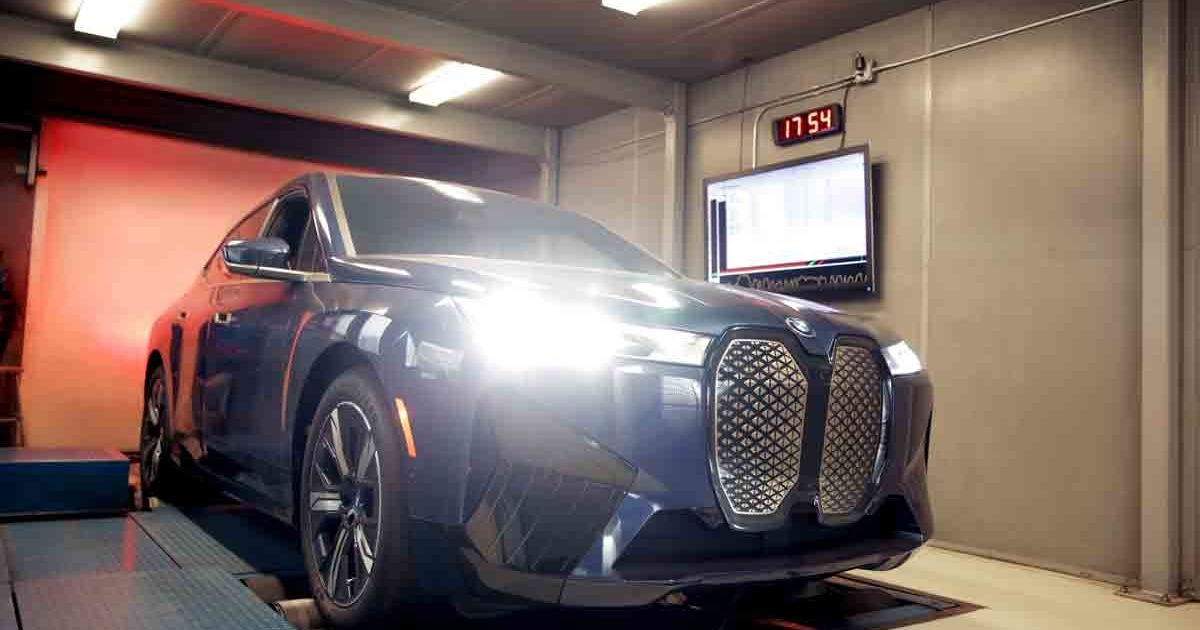
Michigan battery startup Our Next Energy is moving beyond what founder Mujeeb Ijaz calls “a scientific curiosity.”
The company, which aims to double the range of vehicles compared with today’s standards, is placing its hybrid battery technology into a BMW prototype.
The two companies said Tuesday they’ve signed an agreement to integrate ONE’s long-range battery technology, which reduces the use of scarce and expensive materials such as lithium, nickel and cobalt, into an iX electric SUV. They expect to complete the prototype vehicle by the end of the year and demonstrate its ability to achieve 600 miles of range.
BMW i Ventures, the automaker’s venture-capital arm, led ONE’s $65 million funding round last October, so the official agreement between the battery startup and the German automaker was expected.
Tuesday’s development affirms that support and signals further collaboration ahead.
“We’re on a path where every piece of the puzzle that’s required in understanding a production program is part of what we’re doing and discussing with them,” Ijaz, who also is ONE’s CEO, told Automotive News. “This is a matter of how to channel this to market, and what we’re seeing in BMW’s view, what bridges we have to get across, how the product works on energy, power and cost, and can we put it into production from a manufacturing perspective with known technologies.”
ONE’s foray with BMW comes at a time when more vehicle owners are considering EVs. One big hindrance with consumers remains range, and ONE’s approach to addressing that involves marrying a base lithium iron phosphate battery with a separate one that has a chemistry tailored for longer ranges.
In December, the dual-battery technology, which ONE calls Gemini, achieved 752 miles of range in real-world driving in a retrofitted Tesla Model S. The work on the BMW iX serves as another proof point.
Ijaz said ONE is scouting U.S. sites for a cell factory that could make products for both the company’s base battery, called Aries, as well as the longer-range Gemini.
That’s a separate endeavor from the tie-up with Piston Automotive that ONE unveiled last month, in which Piston will manufacture Aries batteries for ONE at a factory west of Detroit in Van Buren Township, Mich. Those batteries are intended for customers in the commercial trucking sector.
“We’re moving in parallel to put cells into production with LFP chemistry as well as the Gemini range-extender chemistry,” Ijaz said. “It’s the best way we can approach building our market, doing that in parallel.”
Though they traditionally offer less range, lithium iron phosphate batteries have gained traction in recent months, as the cost of raw materials in competing battery chemistries has increased.
Threats of battery fires and thermal runaway in batteries that contain nickel and cobalt, Ijaz said, have further pushed vehicle manufacturers, wary of expensive recalls, to seek alternatives.
Those concerns were not clear for most of the industry just two years ago. But for Ijaz, who founded ONE in July 2020, the problems were apparent, and they were a catalyst in seeking a fresh direction.
“We were saying two years ago that nickel and cobalt were both not good bets in the long term,” he said. “We founded the company on the thesis that we needed a raw material supply chain review, because you can’t mine them successfully and globally at the right cost structure.
“If you are going to scale at the level EVs are going now, you need a robust material set that is not going to constrain you. We thought we were onto something there.”
Now, with that hunch proving correct, ONE will further explore its technology with a major automotive partner.